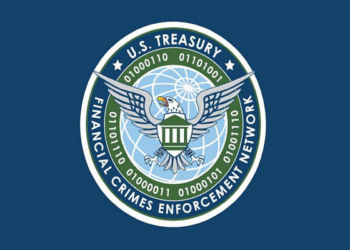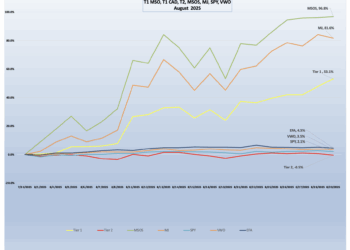Co-authored by Zack Huffman, CRB Monitor News reporter
Adult-use cannabis won’t be coming to Florida, North Dakota or South Dakota following the defeat of ballot measures on Nov. 5. Nebraska voters, however, overwhelmingly approved two medical-use initiatives that currently sit before a judge who will decide whether they can become law following allegations of signature fraud.
Trulieve loses big bet on Florida
Despite the backing of Florida resident and now President-Elect Donald Trump, Trulieve Inc. (TCNNF) lost a costly bet on election night when Amendment 3, which would have legalized adult-use cannabis in the state, failed.
Over 10 million Floridians voted, and 56% were in favor of legalizing adult use, but the measure required at least 60% of total votes to pass.
“Proud to have fought the fight – we left it all on the field. Looking forward to working with the legislature on the next steps to ensure safe access to marijuana for adults in Florida, decriminalization for personal possession and home grow,” said Trulieve CEO Kim Rivers in a statement released on social media.
Trulieve’s stock price took a hit on the news, going from $11.65 a share on election day to $5.17 the following morning. By Thursday, the price appeared to be leveling around $7.75.
Based in Quincy, Fla., Trulieve operates in nine states, but about 70% of its total retail footprint is located in Florida. Florida allows medical operators to open as many dispensaries as they want under a single license. Trulieve currently owns more than 150 of nearly 700 retail shops in Florida and has over 3 million square feet of production capacity in the state.
Trulieve almost exclusively financed the ballot effort with incremental donations across two years. Through the end of October, the Smart & Safe Florida Committee pulled in $152.4 million in contributions, of which at least $144.4 million came directly from Trulieve, according to Florida’s campaign finance database.
Other MSOs got involved, but not anywhere near the same level as Trulieve. Verano Holdings (VRNOF) contributed $3.5 million, and Curaleaf (CURLF) donated $3 million. Cresco Labs (CRLBF), Ayr Wellness (AYR A), Green Thumb Industries (GTBIF) and INSA also paid into the effort, but none gave more than $500,000.
Legalization in the Sunshine State was hotly anticipated among investors. The way the proposed amendment was written, existing medical operators would have had the first opportunity to sell in the adult-use market. Any licensing of new adult-use operators would have to be approved by the legislature.
Florida currently has 24 licensed medical cannabis providers, who control almost 700 dispensaries throughout the state. The state also supposedly has 22 additional medical operator licenses on the way, although there is currently no official timeline for when those licenses will be finalized.
While the country was focused on the polls, Trulieve also released its third quarter earnings report on Nov. 5.
The company had about $238 million in available cash at the beginning of October, according to its 10-Q filing. It reported a $60 million net loss for the quarter, with a total net loss of about $90 million for the first nine months of the year.
The company also reported that it had $352 million in possible tax liabilities, as a result of Trulieve’s position that 280E should not apply to the company. Trulieve refiled tax returns for 2020-2022 last December, and it has received another $52 million in tax refunds so far this year.
Despite those refunds, Trulieve is claiming an uncertain tax position because the IRS may still determine that the refunds were not owed to the company and could then claw them back.
Nebraska ballot measures in legal limbo
If voters have their way, Nebraska could be the next state to legalize medical use. However, a lawsuit is challenging the validity of the ballot measures after a signature gatherer and notary were arrested for alleged fraud and malfeasance.
The Nebraska Medical Cannabis Patient Protection Act # 437, which would allow doctors to recommend marijuana to treat certain medical conditions, was approved by more than 70% of the voters.
A companion measure that would create a medical cannabis market, the Nebraska Medical Cannabis Regulation Act #438, received nearly 67% yes votes.
Secretary of State Bob Evnen certified both petitions in September, with each receiving approximately 90,000 valid signatures, even as the state attorney general started making arrests. The initiatives needed 86,499 valid signatures to qualify.
But then Evnen joined a lawsuit filed against him and the initiative sponsors by former state Sen. John Kuehn who seeks to have them disqualified for signature fraud and notary malfeasance. Testimony in the case wrapped up the day before election day. A decision from Lancaster County District Court Judge Susan Strong isn’t expected for a couple of weeks, according to the Nebraska Examiner.
Attorneys for Nebraskans for Medical Marijuana, which proposed the measures, blamed “human error” for isolated mistakes that amounted to only about 700 purportedly fraudulent signatures on one measure and 400 on the other, the Nebraska Examiner reported. Meanwhile, attorneys for the plaintiffs say there was “serious, intentional wrongdoing,” and at least 80,000 signatures should be thrown out.
The Nebraskans for Medical Marijuana campaign did not respond to an emailed request for comment.
Initiatives fail in the Dakotas
Third time was not the charm for adult-use supporters in North Dakota and South Dakota as initiatives in those states also failed.
In North Dakota, Measure 5, received only 47% yes votes compared to 53% opposed. Proposed by New Economic Frontier, the measure would have legalized adult-use possession, production and sales, as well as limited home cultivation.
Campaign chairperson Steve Bakken did not respond to an emailed request for comment.
Voters approved medical use in 2016 but rejected adult-use initiatives in 2018 and 2022. There were 11 active medical-use licenses in North Dakota, as of Oct. 8.
South Dakota’s Measure 29 would have only allowed adult-use possession and use, as well cultivation of up to six plants per person or 12 per household. Currently, medical patients can grow only two flowering and two non-flowering plants. The initiative was rejected by 56% of the voters.
Adult use was approved by voters in 2020, but then successfully challenged by Gov. Kristi Noem in court. However, medical cannabis was legalized that year. Advocates tried again in 2022, but voters rejected it.
“I’ve never met anyone who got smarter by smoking dope. South Dakotans agreed with me (again) tonight and voted down radical marijuana policy,” Noem posted on X.
There are 132 active medical cannabis business licenses as of Oct 28, according to the CRB Monitor database. Meanwhile, South Dakota has seen a dramatic rise in the number of banking suspicious activity reports in the last year.












